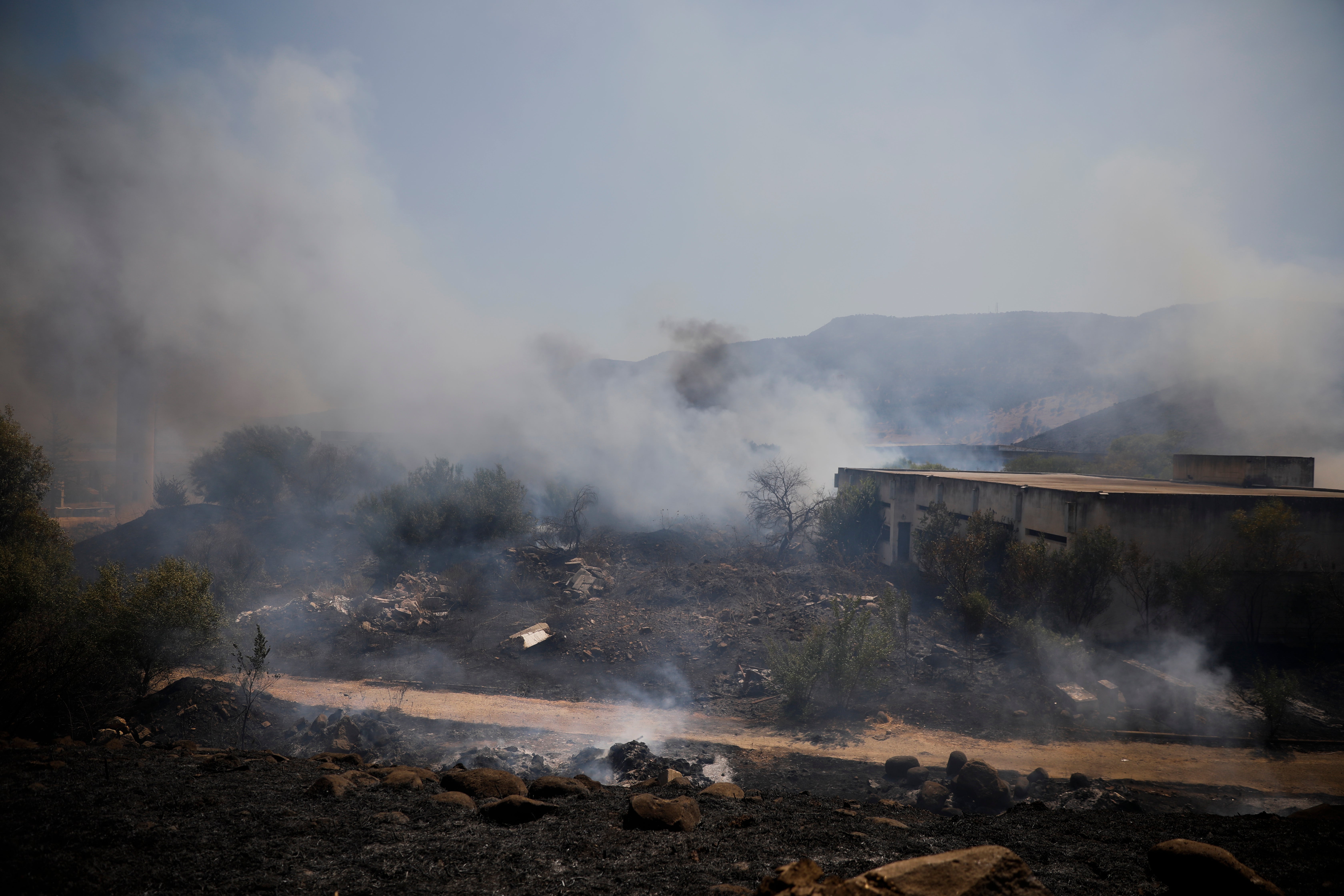Israel launches airstrikes on Lebanon in response to rocket attacks
The overnight airstrikes were a marked escalation at a politically sensitive time.

Your support helps us to tell the story
From reproductive rights to climate change to Big Tech, The Independent is on the ground when the story is developing. Whether it's investigating the financials of Elon Musk's pro-Trump PAC or producing our latest documentary, 'The A Word', which shines a light on the American women fighting for reproductive rights, we know how important it is to parse out the facts from the messaging.
At such a critical moment in US history, we need reporters on the ground. Your donation allows us to keep sending journalists to speak to both sides of the story.
The Independent is trusted by Americans across the entire political spectrum. And unlike many other quality news outlets, we choose not to lock Americans out of our reporting and analysis with paywalls. We believe quality journalism should be available to everyone, paid for by those who can afford it.
Your support makes all the difference.Israel has escalated its response to rocket attacks this week by launching air strikes on Lebanon, military officials said.
The Israeli army said that jets struck the launch sites from which rockets had been fired over the previous day, as well as an additional target which had been used to attack Israel in the past.
The Israel Defence Forces (IDF) blamed the state of Lebanon for the shelling and warned “against further attempts to harm Israeli civilians and Israel’s sovereignty”.
The overnight airstrikes were a marked escalation at a politically sensitive time.
Israel’s new eight-party governing coalition is trying to keep the peace under a fragile ceasefire that ended a 11-day war with Hamas’ militant rulers in Gaza in May.
Several incidents leading up to this week’s rocket fire from Lebanon have focused attention on Israel’s northern border, and the United States swiftly condemned the attacks on Israel.
The Hezbollah-owned Al-Manar TV reported the strikes at around 2am, saying they had hit an empty area in the Mahmoudiya Village in Marjayoun district.
Avichai Adraee, the Israeli army’s Arabic-language spokesman, said the Lebanese government is responsible for what happens on its territories and warned against more attacks on Israel from south Lebanon.
Three rockets were fired from Lebanon into Israeli territory on Wednesday and the army responded with sustained artillery fire, Israel’s military said.
The announcement came after sirens sounded in northern Israel warning of a possible rocket attack. Two rockets landed inside Israeli territory, the army said.
Channel 12 reported that one rocket exploded in an open area and another was intercepted by Israel’s defence system, known as the Iron Dome.
Israeli media reported that the incoming rockets started fires near Kiryat Shmona, a community of about 20,000 people near the Lebanese border.
The Lebanese military reported 92 artillery shells fired by Israel on Lebanese villages as a result of the rocket fire from Lebanon.
It said the Israeli artillery shelling resulted in a fire in the village of Rashaya al-Fukhar.
The Lebanese army also said it was conducting patrols in the border region and had set up a number of checkpoints and opened an investigation to determine the source of the rocket fire.
Lebanese President Michel Aoun said Israel’s overnight air strikes were the first since 2006 and showed an escalation in its “aggressive intent” towards his country.
Aoun also said in a tweet the strikes were a direct threat to the security and stability of southern Lebanon and violated U.N. Security Council resolutions.
US state department spokesman Ned Price condemned the rocket fire from Lebanon. “Israel has the right to defend itself against such attacks,” he told reporters in Washington, adding that the U.S. would remain engaged with partners “in the region in an effort to de-escalate the situation”.
At the United Nations, spokesman Stephane Dujarric said the UN peacekeeping mission in Lebanon, known as Unifil, was aware of the rocket fire and Israel’s artillery response.
He said the Unifil commander, Maj Gen Stefano Del Col, appealed for a ceasefire and urged both sides to “exercise maximum restraint to avoid further escalation”.
AP
Join our commenting forum
Join thought-provoking conversations, follow other Independent readers and see their replies
Comments